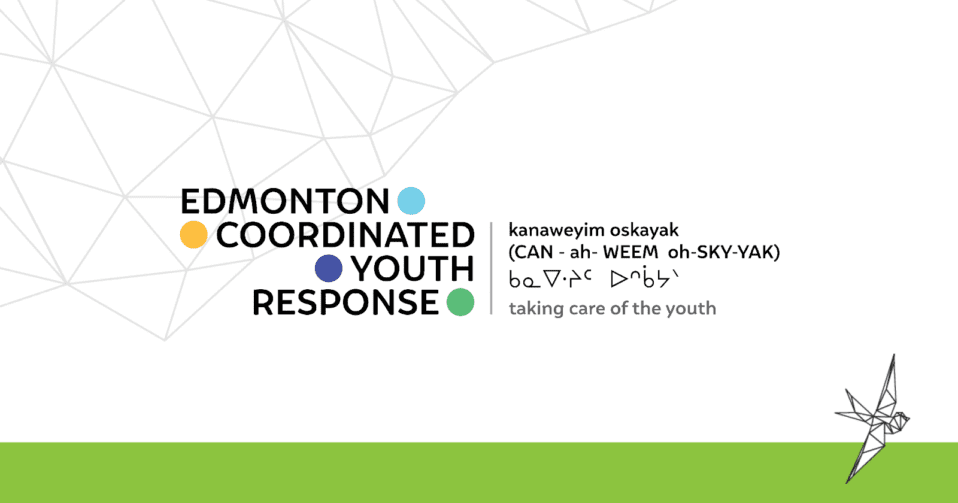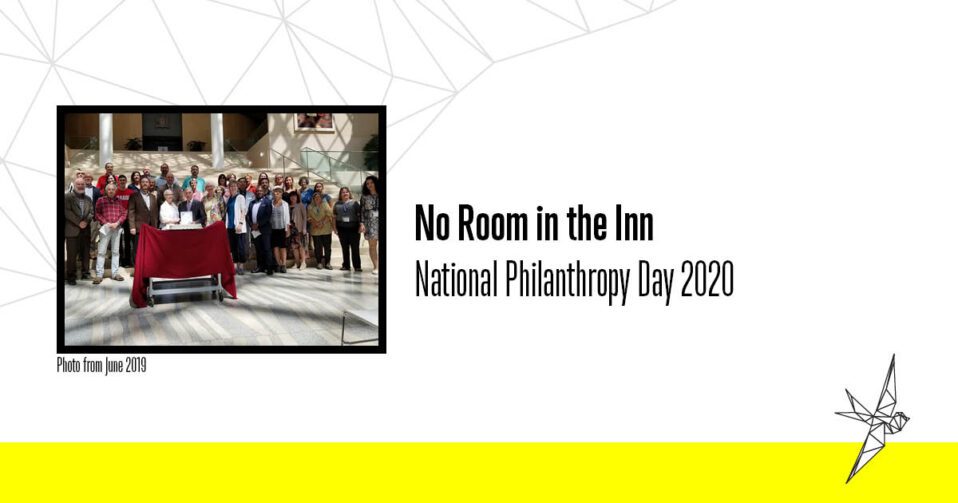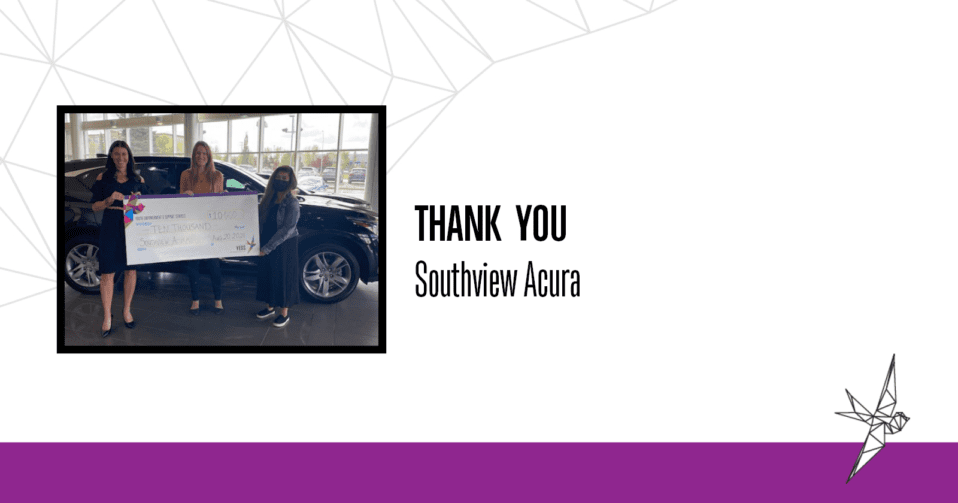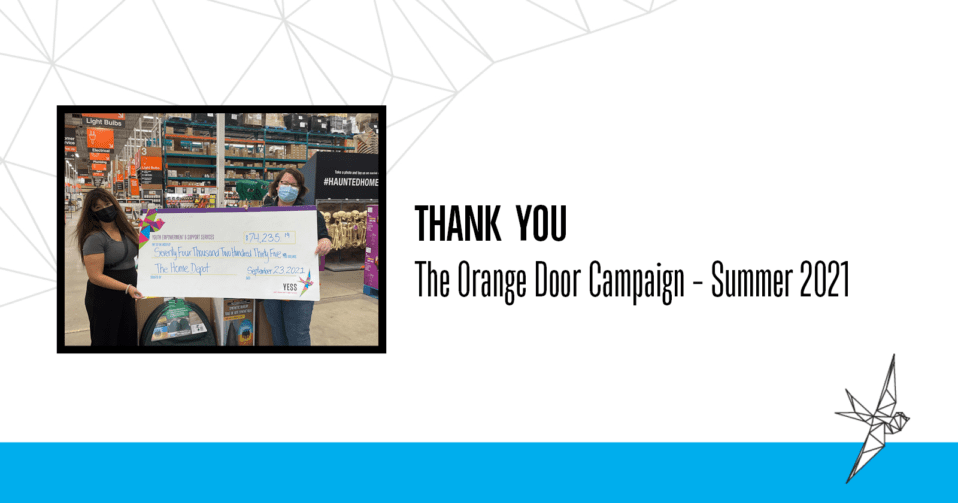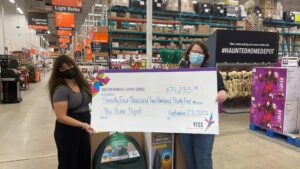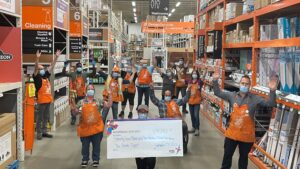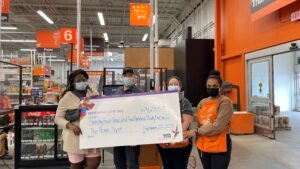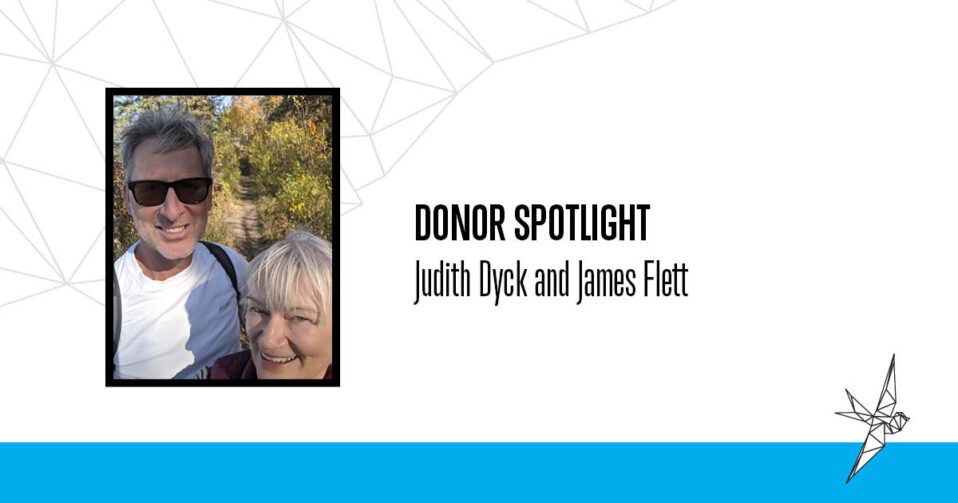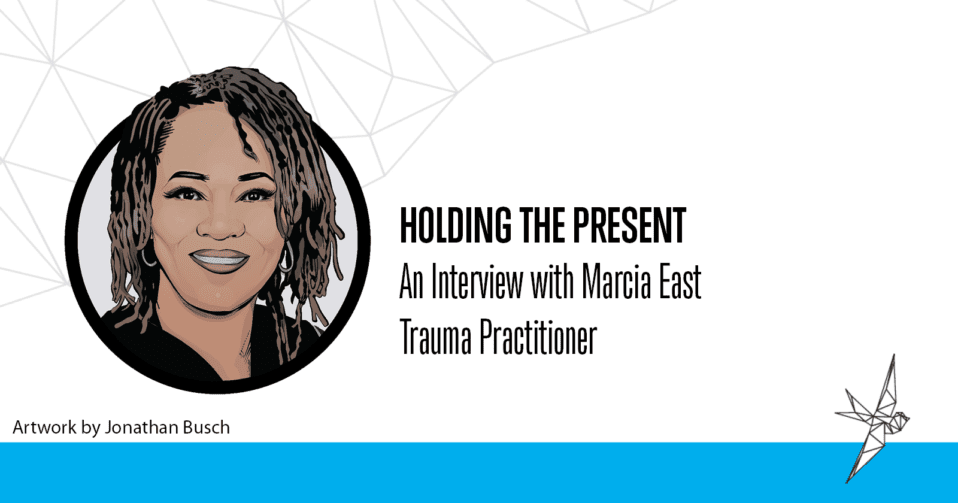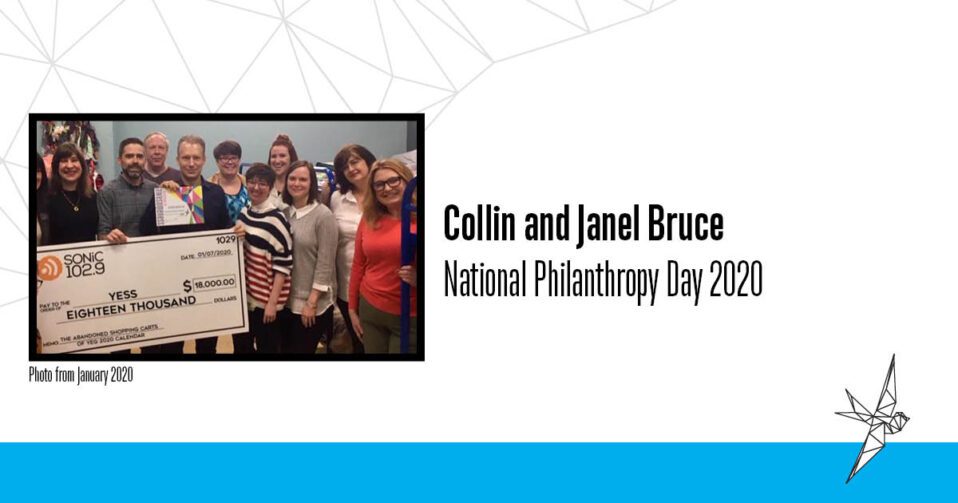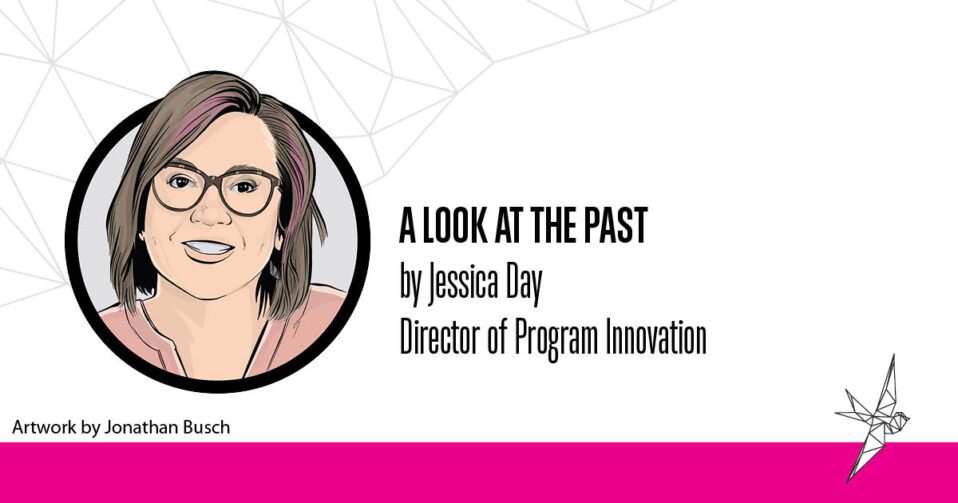To share their experiences in working with youth and as part of the Edmonton Coordinated Youth Response, we talked to Gus Gusul, Management and Strategy Consultant for the Youth Agency Collaboration (YAC), and Lux, Family Resource Network Manager for the C5 NE Hub.
Tell us a bit about yourself and organization.
Gus Gusul: My name is Gus. Now, I know that legally my name is really Matthew Gusul, but no one calls me that (except my mom and the police) – please call me Gus. I am from rural Alberta growing up on an acreage a half mile south of a village named Bittern Lake that is halfway between Camrose and Wetaskiwin on Treaty Six Territory. My family came to Canada one generation ago on my dad’s side (Ukrainian) and two generations ago on my mom’s (Polish), making me a Settler.
I have spent a lot of time in university classrooms, recording studios, rehearsal halls, theatres, in the various places charities/non-profits call offices, pubs/coffee shops, and riding my bike. I have a PhD in theatre where my research was working in Tamil Nadu/Pondicherry, India to help start intergenerational theatre performances in rural areas. I have played in bands and am currently working on recording some songs I have written. I have also written several plays and have taught acting. I have worked for charities/non-profits for all my career outside of a year-long stint working for Indigenous Relations for the Government of Alberta.
I am currently hired as a Strategy and Management Consultant to help the Youth Agency Collaboration complete the final phase of our process in creating a city-wide model for the alleviation of the negative effects of poverty and homelessness on young people in Edmonton. YESS and Boyle Street are sharing the fiscal responsibility for my role.
Lux: My name is Lux, my pronouns are they/them, and I grew up in Treaty 7 territory, just outside Mohkinstsis. A proud queer and trans first generation Canadian, I have spent my adult life in the Human Services field and am currently the Family Resource Network Manager for the C5 NE Hub. The C5 is a collaboration of five non-profits (Bent Arrow Traditional Healing Society, Boyle Street Community Services, Edmonton Mennonite Centre for Newcomers, Norwood Family and Child Resource Centre, and Terra Centre for Teen Parents) who collectively support over 30,000 Edmontonians. The C5 NE Hub is a microcosm of the collaboration in action and was a response to a lack of services in NE Edmonton. The C5 NE Hub currently offers a community hub, employment supports, a Family Resource Network Hub, and food security programming.
How did you become involved with Youth Agency Collaboration and the Coordinated Youth Response?
GG: Last year while I was working as the Interim Executive Director of iHuman Youth Society, I was a member of the Leadership Steering Committee for YAC/CYR after Margo and Krysta (Krysta Fitzgerald, Deputy Executive Director, Boyle Street Community Services) invited me to sit on the committee. I really identified with the goals of YAC/ CYR in the efforts towards collaboration.
While working in India, I was amazed at the level of collaboration between the charities. If one group had extra milk, vegetables, laborers, or just about anything it was immediately shared with their neighbour organization; they collaborated on fundraising in the bigger cities and made sure any visiting dignitaries saw all the amazing work being done in their communities. I was more accustomed to the territoriality and competition between charities I had seen in Canada. I am excited to be working towards collaboration as I see the reality that a rising tide raises all the boats, not just mine. This past summer, I felt my time with iHuman was winding down and took on the challenge of helping with completing the final phase of the YAC Project as the Strategy and Management Consultant.
L: The C5 NE Hub and our Boyle Street neighbour program, Ubuntu, became a joint CYR Hub from the inception of the response, and I had the pleasure of representing us at the table. My background is in youth work and I have a long history of working in youth crisis and housing instability, so it was a good fit. I am able to bring my experience in agency collaboration, my experience as a frontline worker, and my lived experience as a natural support of folx experiencing crisis and housing instability to this work.
How does the Youth Agency Collaboration and the Coordinated Youth Response address the unique needs of youth experiencing homelessness?
GG: Youth-serving agencies in Edmonton are not collaborating well. The fault for this does not lie with the agencies but with the culture our community has historically operated in. Charities are in competition with each other. We compete for funding from the government, for donation dollars from the Edmonton public, and we compete to have young people’s foot traffic through our agencies so we can show the best data. This culture of competition has weakened the ability of youth-serving agencies to meet the needs of young people.
The main purpose behind YAC/CYR is to reform this culture of competition into a culture of collaboration where agencies work to blanket the whole city in crisis services which young people can utilize to aid them in their ability to self-actualize the goals they have for their life. The group of agencies that serve young people in Edmonton will gain in strength through collaboration. We will be better able to advocate to government and business to what our sector needs to support the young people and the frontline staff. If we unite our voice, it will strengthen our voice. If we unite our knowledge, it will strengthen our ability to serve. If we unite our efforts, we will make a positive impact on the young people’s ability to achieve their goals.
I also see YAC/CYR as an opportunity to refocus the efforts of the youth-serving sector from treating the symptoms of poverty, houselessness, and other negative effects caused by capitalism and colonialism and to look at treating the root issues of trauma and family/community neglect. YAC/CYR goal of collaboration gives the youth-serving agencies in Edmonton the ability to focus on more preventative measures. Our collaboration will work to set a standard of practice that will focus on prevention. This shift in focus will help build community and aid young people in their ability to obtain self-actualization.
L: The YAC/CYR work is based on a report completed in Edmonton using stakeholder and lived experience feedback. By utilizing participant-based and practice-based evidence to guide our work we ensure that the voices of those we serve are at the forefront of our decision making. The CYR platform leverages technology to get youth connected to a team of supports when they ask for it, rather than expecting youth to traverse the entire city, often taking several
days, to build their care team on their own, if they are able to navigate the existing barriers. We are meeting the unique needs of developing brains experiencing crisis and housing instability by reducing wait times to be connected to resources and sharing in the labour of building an appropriate care team.
That youth experiencing crisis and housing instability are kind, talented, dynamic human beings whose brains are still developing. Like any other youth they are navigating the world around them, determining the paths they will take in the future. They deserve the same space and grace we give all youth.


